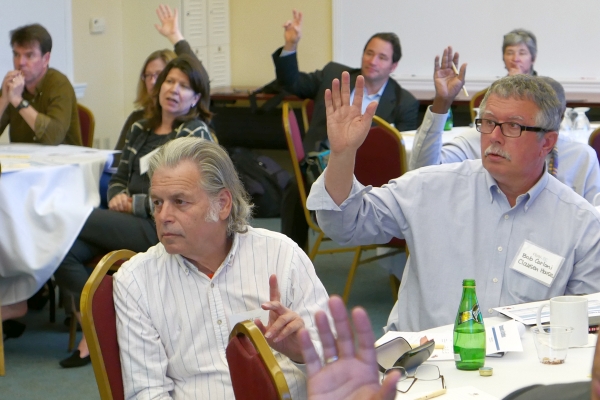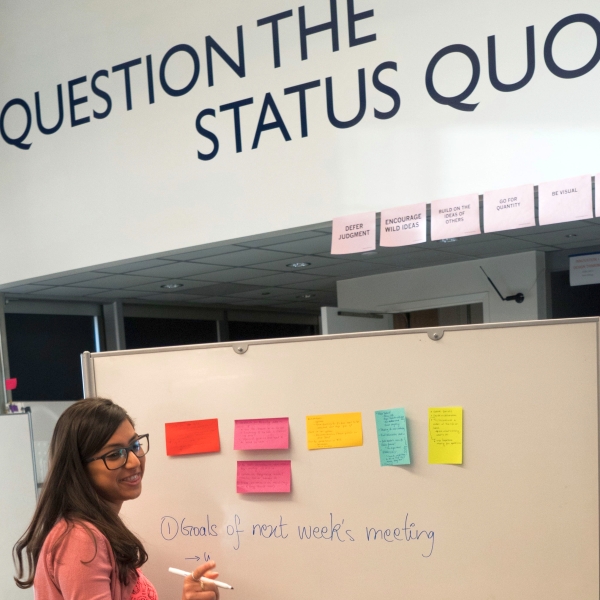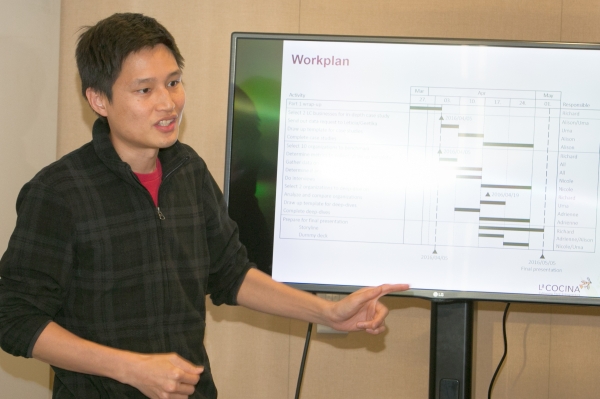 Savvy nonprofits tap into all the resources available to them. Those resources include the skills, passion, and energy of Berkeley-Haas MBA and other grad students. Nonprofit organizations can benefit from two major community-based programs; Berkeley Board Fellows (BBF) and Social Sector Solutions (S3), both of which are accepting applications.
Savvy nonprofits tap into all the resources available to them. Those resources include the skills, passion, and energy of Berkeley-Haas MBA and other grad students. Nonprofit organizations can benefit from two major community-based programs; Berkeley Board Fellows (BBF) and Social Sector Solutions (S3), both of which are accepting applications.
The Berkeley Board Fellows program is, at it’s core, about board excellence. Selected nonprofits simultaneously meet a critical board need, and provide a learning environment for future board leaders. Two grad students join the board as non-voting members. They complete a project through a board committee and receive insight into board service from a mentor. The Social Sector Solutions program provides accessible management consulting to tackle complex, strategic questions for nonprofits. Consulting teams are guided by experienced faculty and aided by McKinsey & Company coaches.
| BBF | S3 |
| • 2 fellows serve jointly | • 5 person consulting team |
| • Oct – May (8 hrs/month) | • January – May (15 weeks) |
| • Located in the Bay Area | • Any location (incl. int’l) |
| • Provides board member training | • Provides team coach |
| • 30 nonprofits | • 10 nonprofits |
| • Free | • Fee-based |

BBF nonprofit partners at financial management training.
How Students Help the Nonprofits
In Berkeley Board Fellows, the two fellows serving on the board will lead a project as part of the board committee they attend. BBF projects fall into 1 of 4 categories:
- Performance measurement/assessment
- Business strategy/planning
- Financial management
- Marketing
Some sample projects from past Fellowships include:
- Research and analyze three earned income ideas to support core mission.
- Determine appropriate pricing for 2 afterschool programs.
- Develop social media strategy recommendations to increase effectiveness of the organization’s profile.
- Develop a board member dashboard to compile and display data to track progress on a new strategic plan.
Social Sector Solutions projects can be in any area, but must be of key, strategic concern for the organization and “big enough” to fully engage a team of 5 for 15 weeks.
Some examples of previous Social Sector Solutions projects include:
- Develop a national program expansion strategy.
- 10-year program impact evaluation.
- Brand evaluation and improvement recommendations.
- Create a sustainable financial model for a program or organization.

Students brainstorming an S3 project.
Which program is right for you?
Having a hard time deciding which great program can best propel your nonprofit toward mission success? The key may lay in the type of project you have in mind. Try asking this question: If we are not accepted into one of these programs, who would be tasked with executing the project?
If the answer is “another board member“, Berkeley Board Fellows may be right for you.
If the answer is “an external consultant/firm“, Social Sector Solutions is probably a fit.
Raise Your Hand to Show Your Interest!
The success stories from both programs abound. You can read some of them on this blog by clicking on the Berkeley Board Fellows or Social Sector Solutions content tag.
Full Program details and applications can be found at the Berkeley Board Fellows or Social Sector Solutions program pages. Questions related to these programs can be directed to:
Berkeley Board Fellows: Cathy Garza at cathy_garza@haas.berkeley.edu
Social Sector Solutions: Andrik Cardenas at andrik@haas.berkeley.edu

Student discussing a project plan.

 It’s not just you: Nonprofit financial management is difficult for several reasons. Even experienced finance industry professionals can struggle to understand the financial structure of a nonprofit whose board they join. Despite this reality, a little information goes a long way for board members trying to understand and engage with nonprofit finances.
It’s not just you: Nonprofit financial management is difficult for several reasons. Even experienced finance industry professionals can struggle to understand the financial structure of a nonprofit whose board they join. Despite this reality, a little information goes a long way for board members trying to understand and engage with nonprofit finances.

 Joe Dougherty, Partner and West Coast Leader,
Joe Dougherty, Partner and West Coast Leader, 

 Galen, BS 84, MBA 88
Galen, BS 84, MBA 88

